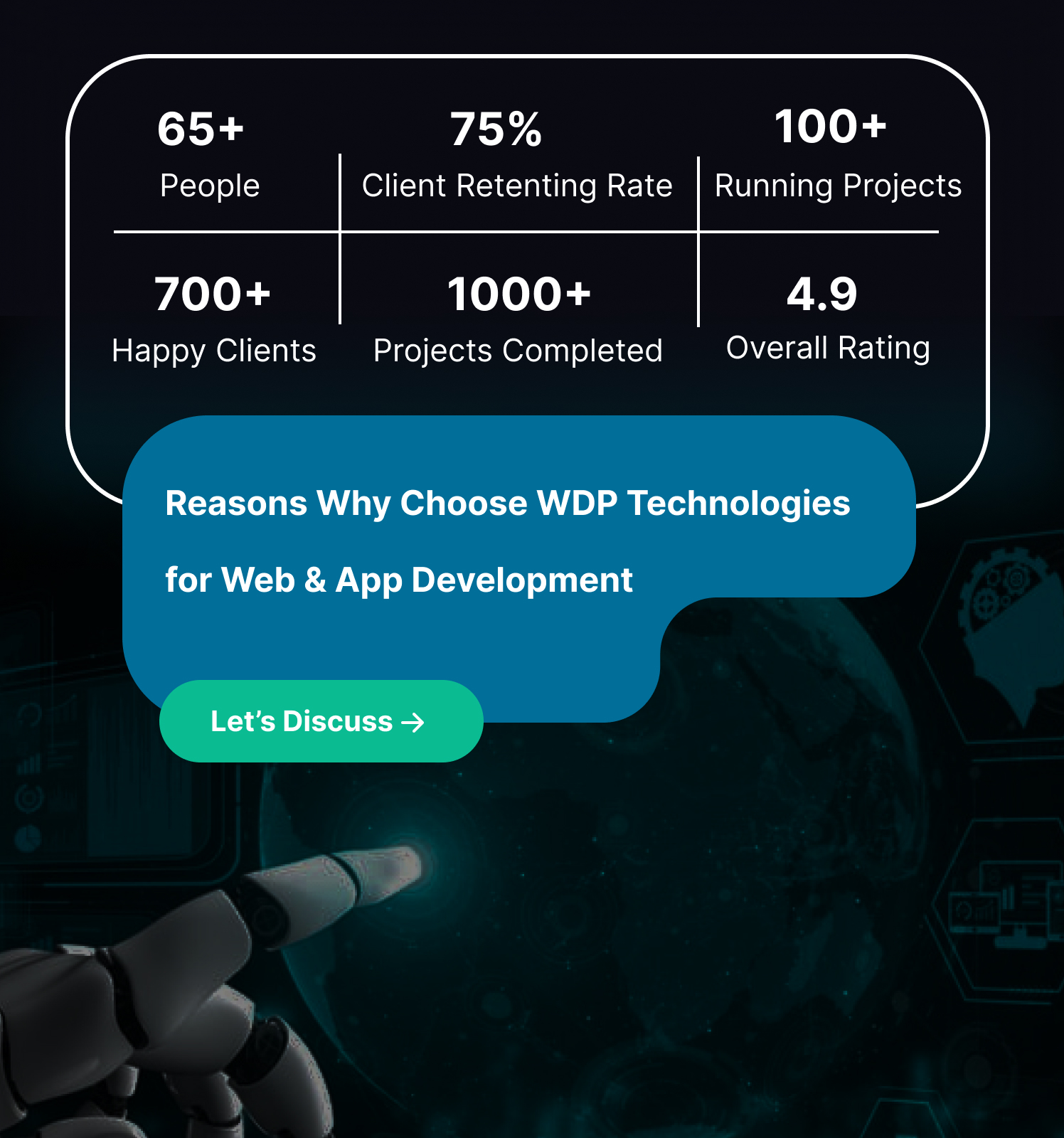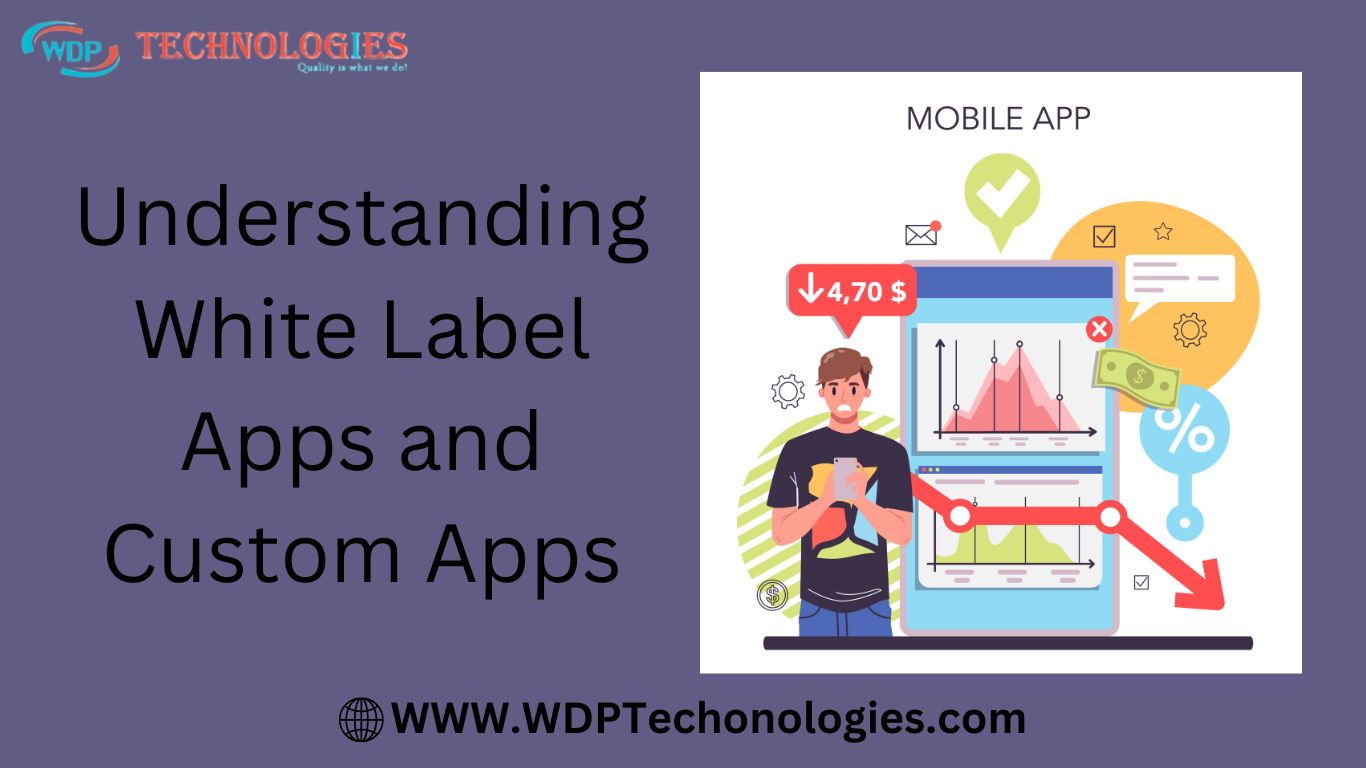In the rapidly evolving era of e-commerce, businesses are constantly seeking innovative solutions to stay ahead of the curve. One such groundbreaking technology that has transformed the way online retailers operate is Artificial Intelligence (AI). From enhancing customer experiences to optimizing backend processes, AI has proven to be a game-changer in the world of e-commerce. In this comprehensive blog, we will get into the various effective ways to leverage the power of AI in eCommerce.
AI Streamlines eCommerce Industry
AI is catalyzing a transformative shift in the e-commerce industry. From personalized shopping experiences and dynamic pricing strategies to automated customer service and augmented reality applications, artificial intelligence is reshaping how online businesses operate. The integration of Ain eCommerce I enables precise customer targeting, efficient inventory management, and streamlined logistics.
Moreover, technologies like natural language processing and sentiment analysis enhance customer interactions, while predictive analytics ensures businesses stay ahead of market trends. Embracing AI is not just a trend; it’s a strategic imperative for e-commerce enterprises seeking to enhance efficiency, elevate customer satisfaction, and thrive in an ever-evolving digital landscape. The future of e-commerce is undeniably intertwined with the intelligent and adaptive capabilities that AI brings to the forefront.
The global AI-powered e-commerce solutions market is projected to reach a staggering $16.8 billion by 2030, growing at a compound annual growth rate (CAGR) of 15.7%.
Effective Ways To Use AI In Ecommerce
The integration of AI in ecommerce is not just a trend; it’s a revolution. By harnessing the power of this transformative technology, businesses can create personalized, efficient, and delightful experiences for their customers, leading to enhanced profitability and sustainable growth.
1. Personalized Shopping Experiences:
One of the most significant contributions of AI in e-commerce is the ability to provide personalized shopping experiences for customers. AI algorithms analyze customer data, including purchase history, browsing behavior, and preferences, to recommend products tailored to individual needs.
This not only enhances customer satisfaction but also increases the likelihood of conversion. Personalization extends beyond product recommendations and includes personalized marketing messages, pricing, and even website layouts.
2. Chatbots and Virtual Assistants:
AI-powered chatbots and virtual assistants have become indispensable tools in e-commerce customer service. These intelligent systems can handle a myriad of customer queries, provide real-time support, and guide users through the purchase process.
By integrating natural language processing capabilities, chatbots can understand and respond to customer inquiries, providing a seamless and efficient communication channel. This not only improves customer satisfaction but also frees up human resources for more complex tasks.
3. Predictive Analytics for Inventory Management:
AI-driven predictive analytics play a crucial role in optimizing inventory management in e-commerce. By analyzing historical sales data, seasonal trends, and external factors such as holidays, AI algorithms can accurately predict demand.
This enables retailers to maintain optimal stock levels, reducing the risk of overstocking or stockouts. Efficient inventory management leads to improved customer satisfaction, decreased holding costs, and increased overall profitability.
4. Fraud Detection and Prevention:
E-commerce businesses are often targeted by fraudulent activities, including payment fraud and account takeovers. AI algorithms excel in detecting patterns and anomalies, making them invaluable in fraud detection and prevention.
By continuously analyzing transaction data and user behavior, AI systems can identify suspicious activities in real-time, preventing unauthorized access and fraudulent transactions. This not only safeguards the business but also enhances the trust and confidence of customers.
5. Dynamic Pricing Strategies:
AI-powered dynamic pricing strategies enable e-commerce retailers to adjust prices dynamically based on various factors such as demand, competition, and market trends. By analyzing vast amounts of data in real-time, AI algorithms can optimize pricing to maximize revenue and competitiveness.
Dynamic pricing ensures that products are priced competitively, taking into account factors like time of day, seasonality, and customer behavior.
6. Visual Search and Image Recognition:
Visual search and image recognition technologies powered by AI have revolutionized the way customers search for products online. By allowing users to search for items using images rather than text, e-commerce platforms enhance the search experience. AI algorithms analyze visual data, identify objects, and match them with relevant products in the inventory.
This technology not only streamlines the search process but also opens up new avenues for impulse purchases.
7. Voice Commerce:
With the rise of virtual assistants like Amazon’s Alexa and Google Assistant, voice commerce has emerged as a significant trend in e-commerce. AI enables voice recognition and natural language processing, allowing users to make purchases, track orders, and receive personalized recommendations using voice commands.
Integrating voice commerce capabilities into e-commerce platforms enhances accessibility and convenience for users, catering to the growing demand for hands-free interactions.
8. Social Media Listening & Sentiment Analysis:
AI plays a crucial role in social media listening and sentiment analysis for e-commerce businesses. By monitoring social media platforms, AI algorithms can analyze customer sentiment, feedback, and trends.
This valuable information helps businesses understand customer preferences, identify potential issues, and tailor marketing strategies accordingly. Social media insights powered by AI contribute to proactive decision-making, brand reputation management, and targeted marketing campaigns.
9. Automated Content Creation:
AI-powered tools can automate the creation of product descriptions, marketing content, and even social media posts. Natural language generation algorithms analyze product attributes and generate compelling and contextually relevant content. This not only saves time but also ensures consistency in messaging across various platforms.
10. Customer Segmentation & Targeted Marketing:
AI algorithms excel at analyzing customer data to identify segments with similar behaviors and preferences. By understanding the characteristics of different customer segments, e-commerce businesses can create targeted marketing campaigns. This approach increases the relevance of marketing messages, leading to higher engagement and conversion rates.
Things to Know Before Adapting AI in Ecommerce
The buzz around AI in eCommerce is undeniable, and for good reason. This transformative technology offers immense potential for enhanced personalization, streamlined operations, and boosted profits. However, jumping headfirst into AI implementations without proper preparation can lead to missed opportunities and even pitfalls. Here are some key things to consider before adopting AI in eCommerce journey:
1. Define Your Goals:
First and foremost, ask yourself what you want to achieve with AI. Is it personalized recommendations? Improved logistics? Fraud detection? Having a clear understanding of your desired outcomes will guide your technology choices and implementation strategy.
2. Assess Your Data:
AI thrives on data. Ensure you have sufficient high-quality customer data (purchase history, browsing behavior, demographics) to fuel your AI models. Clean, organized, and accurate data is crucial for effective AI operations.
3. Choose the Right Tools:
The AI landscape is vast, with countless tools and platforms available. Research and identify solutions that align with your needs, budget, and technical expertise. Don’t get carried away by the latest buzzwords; select tools that address your specific goals.
4. Start Small and Scale Up:
Implementing AI doesn’t have to be a grand overhaul. Begin with pilot projects in specific areas, like product recommendations or chatbots. This allows you to test the waters, gather data, and refine your approach before scaling up to broader implementations.
5. Invest in Training and Support:
Remember, AI requires expertise. Invest in training your team on using and understanding AI tools. Seek expert support from consultants or agencies if needed, especially for complex projects.
6. Transparency and Ethics:
Be transparent about your use of AI with your customers. Explain how their data is being used and collected, and ensure you adhere to data privacy regulations. Ethical considerations are paramount in AI implementation.
7. Prepare for Change and Iteration:
AI is constantly evolving. Be prepared to adapt your strategies and update your tools as AI technology advances. Iteration and continuous learning are key to staying ahead of the curve.
8. Don’t Forget the Human Touch:
While AI offers automation and efficiency, remember the human element is still vital. Ensure seamless integration of AI with existing customer service and marketing teams to create a balanced, customer-centric experience.
9. Measure and Optimize:
Once you’ve implemented AI, track its impact on key metrics like conversion rates, customer satisfaction, and revenue. Analyze the data, identify areas for improvement, and continuously optimize your AI strategies for peak performance.
10. Embrace the Journey:
Adapting AI is a journey, not a destination. Be patient, stay curious, and learn from your experiences. Remember, AI is a powerful tool, and with careful planning and execution, it can unlock incredible growth and success for your ecommerce business.
Case Studies Highlighting the Power of AI in Ecommerce:
Zara: Inventory Optimization and Fast Fashion Mastery
- Challenge: Managing volatile trends and minimizing overstocking in a fast-paced fashion industry.
- Solution: AI analyzing sales data and predicting future demand to ensure optimal inventory levels for popular items.
- Results: Reduced excess stock, quicker response to fashion trends, and a cost-efficient supply chain, contributing to Zara’s continuous market dominance.
eBay: AI-powered Fraud Detection for a Trusted Marketplace
- Challenge: Protecting millions of buyers and sellers from fraudulent activity in a vast online marketplace.
- Solution: AI analyzing buying patterns, identifying suspicious behavior, and flagging potential fraud in real-time.
- Results: Enhanced trust and a safer environment for both buyers and sellers, leading to increased transactions and sustained platform growth.
Amazon: The King of AI-driven Personalization and Logistics
- Challenge: Offering a seamless and personalized shopping experience across billions of products and worldwide deliveries.
- Solution: AI powering product recommendations, dynamic pricing, voice-activated shopping, and predictive logistics for efficient delivery.
- Results: Personalized experiences for every customer, competitive pricing, convenient shopping options, and rapid delivery, cementing Amazon’s position as the e-commerce behemoth.
Nike: AI-powered Customization for a Unique Customer Experience
- Challenge: Offering personalized options and a sense of exclusivity in a competitive sportswear market.
- Solution: AI powering Nike iD, a platform where customers can design their own shoes with various options and colorways.
- Results: Increased customer engagement, higher-value purchases, and a stronger brand connection through personalized design options.
These are just a few examples, and the possibilities are endless. AI is continuously evolving, and its applications in e-commerce are constantly expanding. From chatbots providing 24/7 customer support to AI-powered image recognition assisting with product searches, the future of e-commerce is undoubtedly driven by AI.
Also Check: Online Auction Website Development
Final Thoughts
The effective integration of artificial intelligence AI in ecommerce is not just a competitive advantage; it has become a necessity for businesses aiming to thrive in the digital era. From providing personalized shopping experiences to optimizing backend operations, AI offers a myriad of solutions that enhance efficiency, customer satisfaction, and overall profitability.
As technology continues to advance, the e-commerce landscape will undoubtedly witness even more innovative applications of AI, reshaping the way we shop and interact online. Embracing these technological advancements is not just an option but a strategic imperative for businesses looking to stay at the forefront of the e-commerce revolution. Contact us for AI ecommerce Development.












